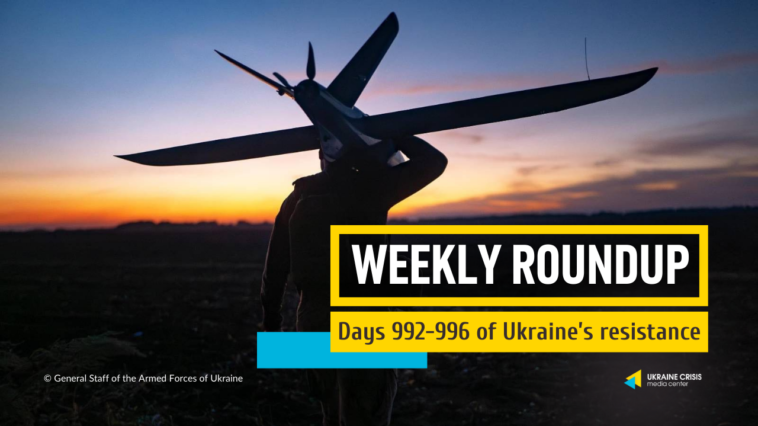This week, fighting continued to rage all along the front lines with the most intense battles being fought around Kurakhove. Russia has destroyed the dam of the Kurakhove water reservoir, and a number of villages were flooded. Heavy fighting rages near Kupyansk, in Kharkiv region. Russian forces failed to gain a foothold in the city and it remains under Ukrainian control, Kupyansk authorities said Thursday. Ukrainian troops have defended their positions against the Russian assaults in the Kursk region where Ukraine is holding ground since August.
Russia continued to pound Ukrainian cities and towns far behind the front lines with missiles and drones. It launched a combination of missiles and drones at Kyiv on Wednesday for the first time in 73 days. A Russian missile strike on Kryvyi Rih on Monday killed a mother and her three children, and injured a further 14 people. A Russian drone attack struck a residential building and energy installations on Thursday evening in Odesa, killing one person and injuring 10 others. Russia maintains readiness to launch major missile strikes at Ukraine, Ukraine’s counter-disinformation official said Monday, commenting on morning flights of Russian bombers that imitated the launch of missiles.
An overwhelming majority of Ukrainians say their country will defeat Russia in the current war, a survey commissioned by the International Republican Institute found. One-in-three believe the war will end in one or two years.
Russian economy will likely face significant challenges in 2025, ISW says. Challenges await the Russian economy, which is now driven by the war in Ukraine and being subjected to Western sanctions, the Institute for the Study of War (ISW) said in a recent report, looking ahead to 2025. The Kremlin’s recent economic policies indicate that the Russian economy will likely face significant challenges in 2025 and that Russian leader Vladimir Putin is worried about Russia’s economic stability in the long term.
The Kremlin recently adopted several policies that aim to cut Russian government spending on wounded Russian servicemen, combat inflation, and address long-term demographic problems such as low birth rates and labor shortages. These policies demonstrate that the Russian economy is not as resilient to Western sanctions, monetary constraints, and the cost of the war effort as the Russian government postures, ISW said.




